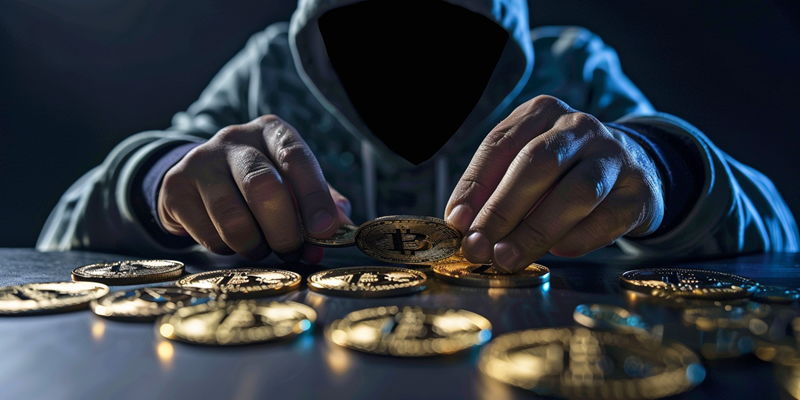The hacking incident involving Doja Cat’s X (formerly Twitter) account on July 8 has catapulted concerns about the misuse of celebrity platforms for fraudulent activities into the limelight. This security breach, reported by Daily Trends and The Daily Mail, saw the hacker utilizing her account to promote a scam cryptocurrency called “Doja Cat (DOJA).” This event underscores not only the seriousness of unauthorized access to high-profile social media accounts but also the susceptibility of the digital fan base to financial scams. The hacker’s post, which included an image of Doja Cat in armor and a threatening prompt to “buy $DOJA or else,” alongside the token’s Solana contract address, exemplifies the audacious tactics employed by cybercriminals. Not only was the account used to promote the fraudulent token, but it also disseminated derogatory comments about rapper Iggy Azalea and engaged with other notable celebrities, thereby amplifying the reach and impact of the scam.
The Surge and Crash of “Doja Cat (DOJA)”
The fraudulent token “Doja Cat (DOJA)” experienced a brief, explosive surge in market capitalization, swirling up to a staggering $1.65 million before plummeting drastically to about $16,820. This immense volatility left investors grappling with over $1.63 million in losses, as revealed by data from DEXScreener. The token’s price peaked at $0.001656 shortly after its deceitful launch, only to nosedive rapidly to an insignificant $0.00001682. This quick rise and fall scenario is a textbook example of “pump and dump” schemes, wherein an asset’s price is artificially inflated to attract investments, following which the asset’s perceived value crashes, resulting in massive financial losses for the investors. The incident conspicuously highlights the vulnerability of digital assets to fraudulent manipulation, particularly those associated with prominent figures.
Doja Cat’s followers were soon met with a video from the artist herself, affirming that the post was not her doing and urgently advising her fans to disregard it. This public denunciation is crucial in alleviating some investor concerns, yet the financial damage had already been done. In a show of solidarity, Iggy Azalea tweeted her recognition of the hack, expressing support for Doja Cat and clarifying the fraudulent nature of the post. These events have compounded user skepticism and raised alarms about the necessity for improved cybersecurity measures in protecting high-profile social media accounts from such breaches.
Broader Trend of Celebrity Account Hacks
The hacking of Doja Cat’s account is not an isolated incident but a part of a burgeoning trend where celebrity accounts are compromised to endorse fraudulent tokens. Another relevant case includes actress Sydney Sweeney, whose X account was hacked on July 2 to promote an unofficial “SWEENY” celebrity coin. These incidents reveal a troubling pattern where celebrities become unwitting accomplices in memecoin promotions, leading many to lose faith in the security of such endorsements. The pervasive trend of exploiting celebrity accounts has sparked discussions about potential class-action lawsuits and stringent enforcement actions by the US Securities and Exchange Commission.
This ongoing exploitation signifies a broader issue of online security for public figures whose social media presence is increasingly leveraged by cybercriminals for fraudulent purposes. Public figures, by virtue of their substantial fan base and widespread influence, become prime targets in this digital age. The challenge, therefore, lies in fortifying these platforms against unauthorized intrusions while educating the public to recognize and rebuff such scams. This dual approach is integral to safeguarding not just the finances of the followers but also the reputations of the celebrities involved.
Implications for Future Cybersecurity Measures
The hacking of Doja Cat’s account is not unique; it’s part of a growing trend where celebrity accounts are breached to endorse fraudulent tokens. For instance, actress Sydney Sweeney’s X account was hacked on July 2 to promote an unauthorized “SWEENY” celebrity coin. These incidents highlight a worrying pattern where celebrities unknowingly become tools for memecoin promotions, causing many to distrust the security of such endorsements. This trend has sparked discussions about potential class-action lawsuits and stronger enforcement by the U.S. Securities and Exchange Commission.
The increasing exploitation of celebrity accounts reflects a broader issue of online security for public figures. Celebrities, due to their extensive fan base and significant influence, are prime targets in this digital era. The challenge lies in strengthening these platforms against unauthorized intrusions and educating the public to identify and avoid such scams. This dual approach is crucial to protecting followers’ finances and the reputations of the celebrities involved. Addressing this growing problem requires a comprehensive strategy involving technology, legal measures, and public awareness.

